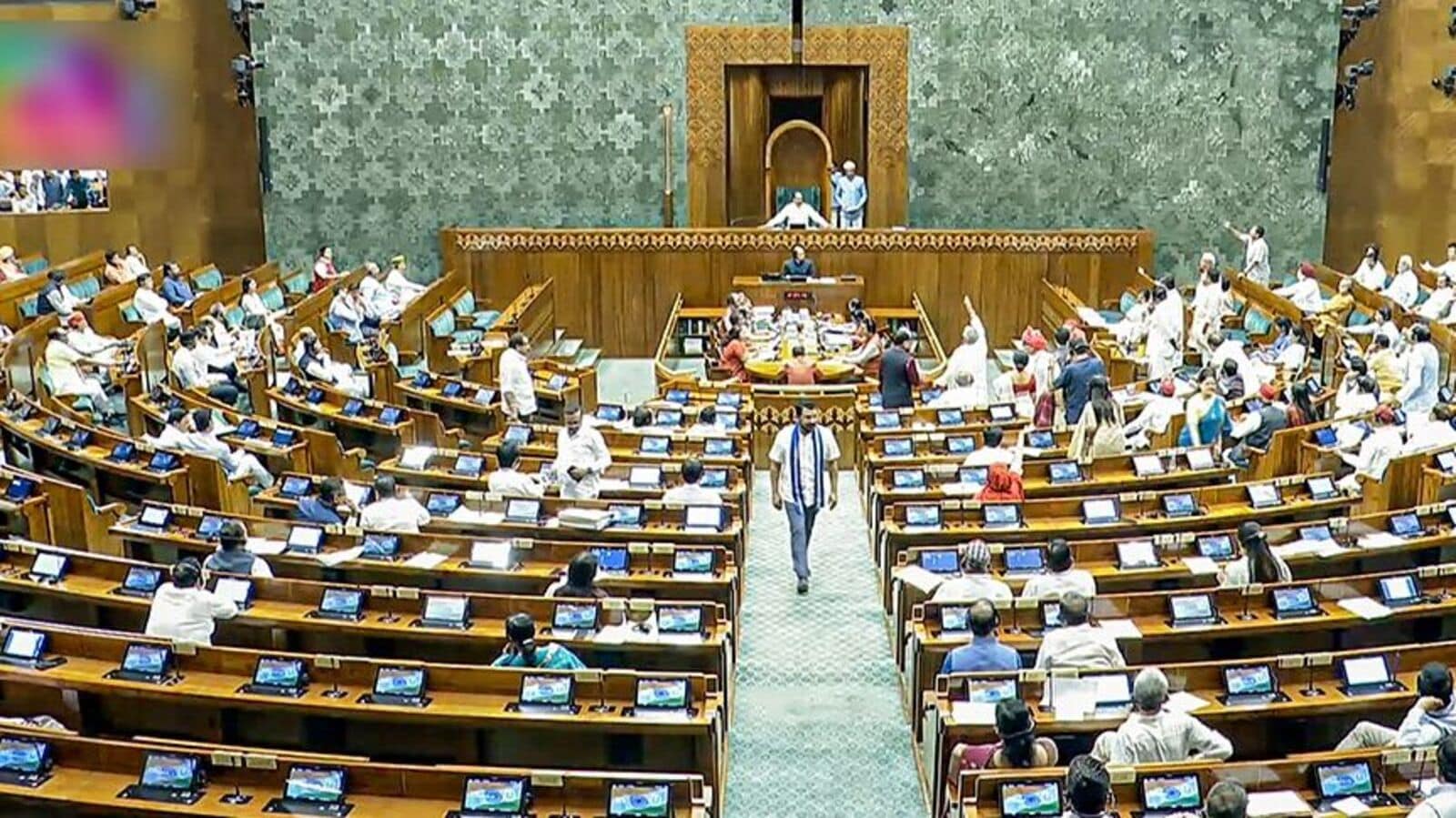The Bharatiya Janata Party (BJP) and Congress parties on April 1 issued three-line ‘whips’ to all their Lok Sabha Members of Parliament (MPs), mandating them to be present in the Parliament on April 2, 2025.
The reworked Waqf (Amendment) Bill is all set to be brought in the Lok Sabha for passage on April 2. The Samajwadi Party has also issued a three-line whip to its MPs in the lower house, asking them to be present throughout the day.
The Parliament’s business advisory committee (BAC) has allocated eight hours for the discussion on the bill, which is likely to be introduced by Union Minority Affairs Minister Kiren Rijiju around noon.
What is a ‘whip’, and what is its significance in the functioning of Parliament or state assembly? Here is a short explainer.
What is a ‘whip’?
A ‘whip’ refers to a written order to members of a political party in the House to abide by a certain direction. A designated party leader in the House is authorised to issue such a direction.
All political parties appoint a senior member, who is a member of the House, to issue whips. This member a chief whip, is assisted by additional whips.
In the case of the BJP, for example, the three-line whip on April 1 was issued by Sanjay Jaiswal, who is the chief whip of the BJP in Lok Sabha.
“All BJP members of Lok Sabha are hereby informed that some very important legislative business will be taken up for passing in the Lok Sabha on Wednesday, 2nd of April 2025. All members of the BJP in the Lok Sabha are, therefore, requested to be positively present in the House throughout the day on Wednesday, 2nd of April, 2025 and support the Government’s stand,” the whip by Jaiswal read.
K Suresh, an MP from Kerala, is the Congress party’s chief whip in the Lok Sabha.
What does ‘whip’ mean?
The term ‘whip’ is derived from the old British practice of “whipping in” lawmakers to follow the party line.
A ‘whip’ may require that party members be present in the House for an important vote so that they vote only in a particular way.
What is the significance of the ‘whips’?
‘Whip’ is an important element of Parliament’s functioning and can have different levels of seriousness. The importance of a ‘whip’ can be inferred from the number of times an order is underlined.
A one-line ‘whip’, underlined once, is issued to inform party members of a vote. This ‘whip’ allows the members of the House to abstain from voting in case they decide not to follow the party line.
A two-line ‘whip’ directs them to be present during the vote.
The strongest is the three-line ‘whip’, usually issued on important occasions such as key legislations or a no-confidence motion. The members are obliged to toe the party line in this case.
The Waqf (Amendment) Bill is one of the important bills that the BJP-led NDA wants to pass amid opposition from the INDIA bloc. That is precisely why the ruling government wants to ensure that all its members are present in the house whenever voting takes place.
The ruling party wants to pass the bill in the ongoing second leg of the Budget Session of Parliament that ends on April 4.
What if any member defies the ‘whip’?
A lawmaker may use his membership of the House if she decides to defy the three-line whip. The anti-defection law allows the Speaker/ Chairperson of the House to disqualify such a member. There won’t be any action, however, in cases where more than a third of legislators of a particular party vote against a directive by the party.
Like Lok Sabha, the Rajya Sabha also has a ‘whip’ system. In January, Vice President Jagdeep Dhankhar, who is also the chairperson of Rajya Sabha, questioned the need for parties to issue whips to legislators, saying they restrict representatives’ freedom and subject them to “servility”.
“Why should there be a whip? Whip means you are curtailing expression, you are curtailing freedom, you are subjecting your representative to servility. You don’t allow such a person to use his or her mind,” Dhankhar told a group of students at his residence, as reported by the Indian Express.
In February 2023, the Supreme Court observed orally that members of a House are “bound” by the ‘whip.’ “And if any section of MLAs within a political party that is part of a ruling coalition says it does not want to go with the alliance, the MLAs will attract disqualification,” the top court said.
A five-judge Bench led by then Chief Justice of India (CJI) DY Chandrachud was hearing petitions filed in the wake of the political crisis in Maharashtra after a split in the Shiv Sena in 2022 fuelled by a rebellion by Eknath Shinde, now deputy chief minister of Maharashtra..
What are examples from other countries?
‘Whip’ is an important element of Parliament’s functioning and can have different levels of seriousness.
In the United Kingdom, an MP can lose membership of the party for defying the whip. The member can however continue as member of the House as an Independent.
In the United States, “the party whip’s role is to gauge how many legislators are in support of a Bill and how many are opposed to it — and to the extent possible, persuade them to vote according to the party line on the issue,” according to Parliament research non-profit, PRS Legislative Research.
Catch all the Business News, Politics news,Breaking NewsEvents andLatest News Updates on Live Mint. Download TheMint News App to get Daily Market Updates.
MoreLess









Leave a Reply